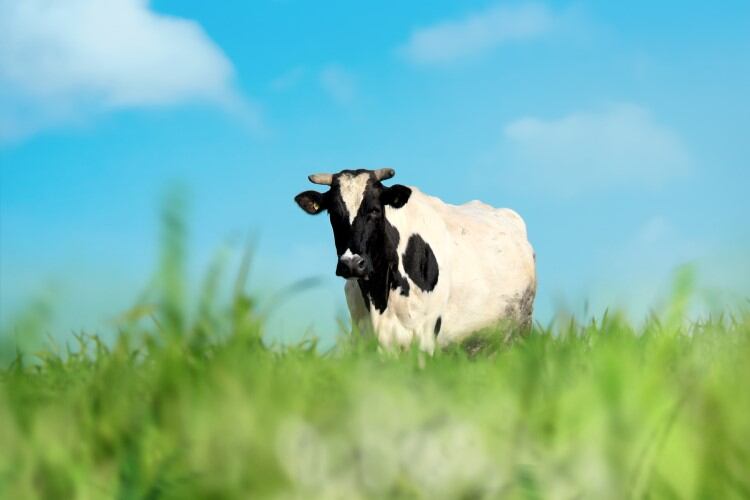Introduced by Vermont senator Peter Welch, the Organic Dairy Assistance, Investment, and Reporting Yields Act – colloquially known as O DAIRY – includes provisions for extending ELAP, the USDA emergency assistance program for livestock, honeybees and farm-raised fish producers, to organic dairy farmers, covering them for losses ‘that are beyond those covered by other disaster programs…, including in organic feed or other input costs’ that would reduce farmer income by more than 10% in any given year.
The proposed bill could also ensure greater cost-of-production transparency for the sector by introducing new data collection rules. This would be done by requiring regional and national programs to collect and publish cost of production data for organic milk, including the costs of major organic feedstuffs and prices for domestically-produced and important feed plus ‘all other costs’ relating to milk production.
O DAIRY Act can:
- Extend ELAP to organic dairy farmers facing losses due to factors like feed shortages and increased input costs
- Require USDA to streamline the payment process
- Improve data collection, including cost of production data, feedstuff prices and other production-related costs
- Establish an Organic All Milk Prices Survey
- Require USDA to publish periodic reports for organic milk
- Direct the USDA to develop proposals for new safety net programs
- Establish programs and incentives to boost infrastructure investments, research and innovation within the sector
According to Kathie Arnold, a co-owner/operator of Twin Oaks Dairy LLC in Truxton, NY, this type of data is ‘essential’ for the organic sector. “This bill will provide for the collection of organic dairy production data - the same type of data that has long been compiled for conventional dairy”, she said. “The data is as essential for organic dairy as it is for conventional in providing a basis for good decision-making and policy development.”
As part of the data gathering, a survey analogous to the All Milk Prices Survey will be set up to gather and report monthly data about how much farmers are paid for the milk produced, and the prices received for organic milk cows. There are also provisions for new periodic reports to be published, collecting data equivalent to what is currently reported for conventional milk.
If passed, the bill proposes that new safety net programs are set up within 1 year - to provide ‘adequate support’ based on cost data specific to organic dairy and prioritizing small producers – and that new investments in infrastructure program is introduced within 180 days, ‘to drive greater affinity for regionally sourced and processed organic dairy products’. This could involve incentives for building new processing plants; investing in on-farm infrastructure; expanding regional organic processing infrastructure; initiatives that boost regional processing capacity, and more.
These initiatives would be supported by the introduction of so-called ‘regional organic dairy market specialists’, which could be a Department of Agriculture employee responsible for conducting research on the marketing od organic dairy and for providing recommendations to the Secretary.
The industry reacts
While milk is the best-selling organic commodity in the US – generating $1.6bn in sales in 2021 (source: The NASS 2021 Certified Organic Survey, published December 2022), the sector has been facing increased economic pressure. As a result, the sector has seen significant consolidation activity, resulting in larger farms being the more dominant players thanks to lower average operating costs. The number of small farmers meanwhile has shrunk by 37% between 2007 and 2017, prompting farmers and industry bodies to call for improved support to ensure those remaining farmers do not leave the industry.
O DAIRY Act is supported by farmers, co-operatives, producers and associations including the Organic Farmers Association, Organic Valley, Northeast Organic Farmers Association-Vermont, Northeast Organic Farmers Association-New York, the Maine Organic Farmers and Gardeners Association, Western Organic Dairy Producers Alliance, Straus Family Creamery, the Northeast Organic Dairy Producers’ Association, the National Organic Coalition, and the Center for Food Safety.
"Organic dairy farmers in Vermont and around the country are facing an ongoing economic crisis fueled by supply chain volatility, increased input costs, and pay prices below their cost of production," said Grace Oedel, Executive Director of the Northeast Organic Farming Association of Vermont. "These farms combat climate change, produce nourishing food, and keep our rural communities healthy. We're grateful for Senator Welch's leadership in bringing this bill forward to provide much needed support."
“Family-run organic dairy farms provide healthy food and environmental stewardship to rural communities across the country. The O DAIRY Act can provide much needed investments to alleviate the economic crisis these farmers are facing, and provide valuable data collection to inform future support for the industry," added Kate Mendenhall, Executive Director of Organic Farmers Association. “We applaud Senator Welch for championing this important work.”
Zach Cahill, Board President of Western Organic Dairy Producers Alliance, concluded: “It is very encouraging to see the introduction of the O DAIRY Act. The organic dairy industry has faced several unique challenges over the last five years that have resulted in several farms across the country closing their doors. While acknowledging that there is still more work to be done, organic dairies like mine see this as a huge step towards providing stability to organic milk sheds across the country.
“The organic dairy community applauds the numerous folks who have stepped up to fight for the rural communities that this Act will help support.”




